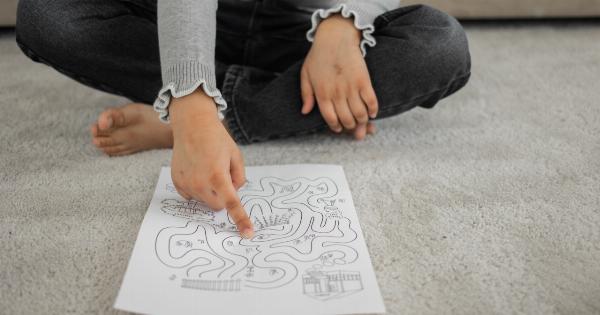As a new parent, it’s natural to feel concerned and anxious when your baby cries. The sound of your little one’s tears can often be unsettling and nerve-wracking, leaving you wondering if something is wrong.
However, experts suggest that there is no need to panic every time your baby cries. In fact, crying is a normal part of a baby’s development and communication. Understanding the reasons behind your baby’s tears can help you respond appropriately and put your mind at ease.
1. Communication
Babies cry as a way of communicating their needs and expressing their feelings. Since they cannot yet speak, crying is their primary means of letting you know that something is amiss.
It could be hunger, discomfort, sleepiness, or even a desire for your presence. Recognizing these different cues can help you decipher the reason behind your baby’s cries and attend to their needs accordingly.
2. Developmental Milestones
Babies go through various developmental stages that contribute to increased crying. From the first few weeks of life, they start to discover their vocal cords and realize the power of expressing themselves through crying.
Similarly, when teething or experiencing growth spurts, babies may cry more frequently due to discomfort or pain. Understanding that these milestones play a role in their crying patterns can alleviate concerns that something is seriously wrong.
3. Soothing Techniques
Experts encourage parents to explore various soothing techniques to calm their crying babies. From gentle rocking to soft singing, these methods can help create a sense of security and comfort for your little one.
Remember that every baby is unique, so it might take some trial and error to determine which techniques work best for your child.
4. Emotion Regulation
Babies, especially newborns, are still learning how to regulate their emotions. Crying is their way of expressing a range of emotions, such as frustration, tiredness, or overstimulation.
By allowing your baby to release these emotions through crying, they can gradually learn how to self-soothe and regulate their emotions as they grow older.
5. Building Trust
When you respond promptly to your baby’s cries, it helps build trust and strengthens the parent-child bond. By meeting their needs consistently, you are conveying the message that they are safe and loved.
Over time, this trust will contribute to a more secure and confident child.
6. Seek Support
It’s perfectly normal for parents to feel overwhelmed or uncertain about how to soothe a crying baby. Seeking support from loved ones, joining parenting groups, or consulting with pediatricians can provide valuable guidance and reassurance.
Remember that you don’t have to go through this journey alone.
7. Time-Limited
Keep in mind that the crying phase is usually time-limited. As your baby grows, their communication skills will develop, and they will learn alternative ways to express their needs.
Most babies naturally outgrow excessive crying by around three to four months of age.
8. Reminder of Needs
Crying is a reminder that your baby has needs that require attention. Rather than viewing it as a disruption, think of it as an opportunity to nurture your child and provide essential care.
Responding to your baby’s cries promptly helps them feel safe, secure, and loved.
9. Parental Intuition
Remember, you know your baby best. Parental intuition plays a significant role in understanding and meeting your baby’s needs.
Through observation and spending quality time with your little one, you will become familiar with their unique cues and cries, enabling you to respond appropriately.
10. Take Care of Yourself
Lastly, it’s crucial to take care of yourself as a parent. Caring for a crying baby can be exhausting and emotionally draining. Prioritize self-care and seek support from your partner, family, or friends.
Remember that a well-rested and emotionally balanced parent is better equipped to respond to their baby’s needs.



























